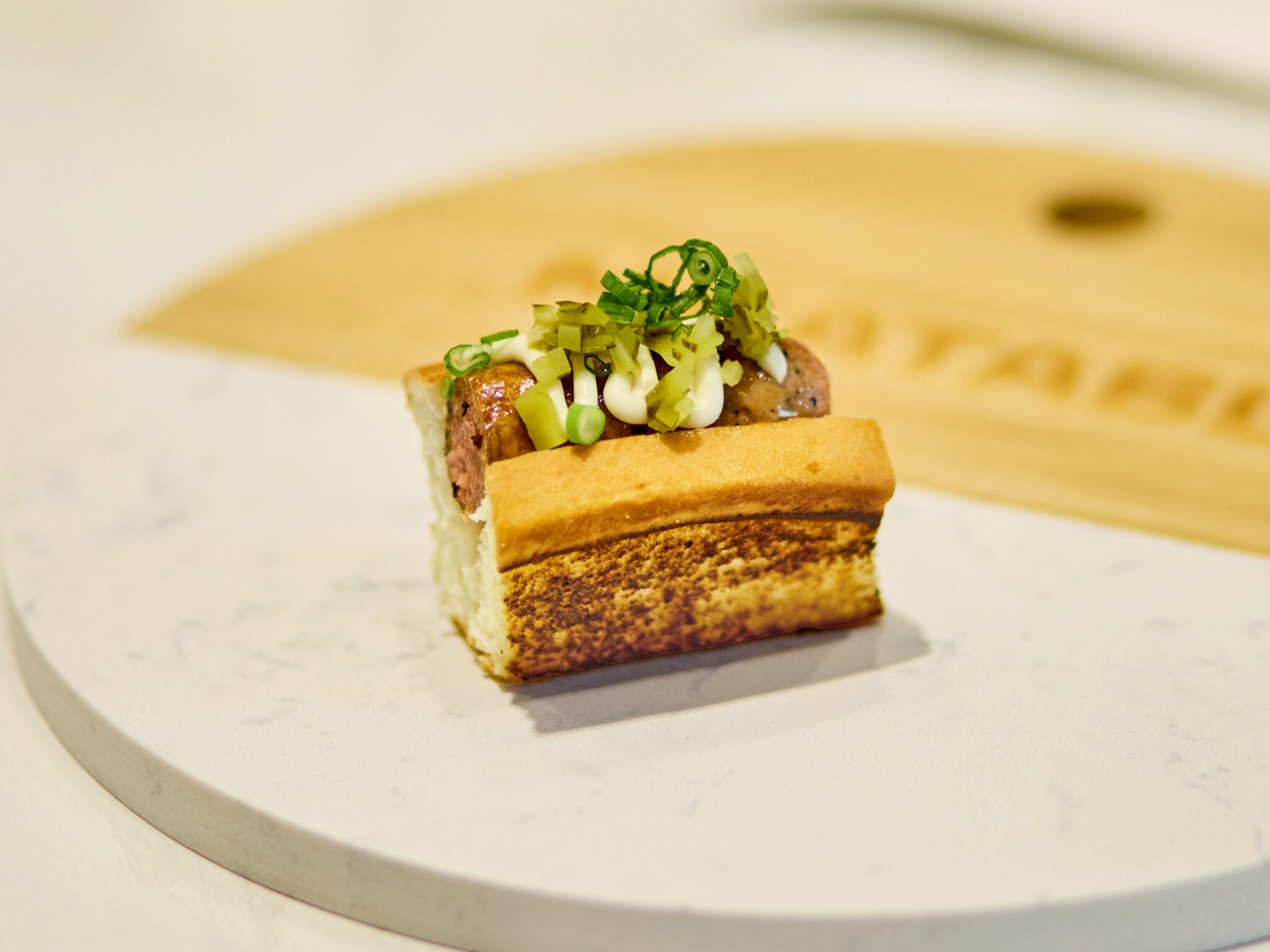Startups Celebrate Dutch Panel to Assess Cultivated Meat Tastings, as Meatable Files Dossier
5 Mins Read
The Netherlands has launched an expert committee to evaluate applications for cultivated meat tastings, six months after forming an official framework for the same. Cultured pork producer Meatable has responded by submitting its dossier to the panel, and expects to host Europe’s first tasting of these novel proteins soon.
Six months after the Dutch government announced a Code of Practice for cultured meat and seafood tastings, the Cellular Agriculture Netherlands Foundation (CANS) has launched an independent expert committee to evaluate companies’ requests to host public trials.
This will be the final hurdle for companies hoping to give people a taste of their product, and would make the Netherlands the first EU country to make pre-regulatory approval tastings possible. The news has been welcomed by local cultivated meat players like Mosa Meat, Upstream Foods, and Meatable – the latter has, in fact, now submitted a dossier for the panel to assess the safety of its cell-based pork.
“We are thrilled to see the protocol developed in consultation with the government is now being implemented,” said Maarten Bosch, CEO of Mosa Meat, the company that unveiled the world’s first cell-cultured burger in 2013. He confirmed that his company too will be applying for tastings of its cultivated beef soon. “The Netherlands continues to be a global leader in sustainable food innovation, even as others in Europe appear to be taking a step backwards at the height of our climate and biodiversity crises.”
Upstream Foods CEO Kianti Figler called it “a pivotal moment” for the country’s cultivated meat and seafood ecosystem: “We are dedicated to revolutionising seafood alternatives through fish fat cultivation, and this initiative empowers us to showcase our innovative approach.”
Ira van Eelen, board member at CANS, said: “Proud of the work we have done as Cellular Agriculture Netherlands to make it possible to taste cultivated meat not only in the Netherlands or the EU, but also in the place where it originated and all started.”
How the cultivated meat tasting committee works

In July, the Dutch government worked with Mosa Meat, Meatable and sector representative HollandBIO to create a Code of Practice that would make tastings possible in controlled environments – those that are suitable for food preparation and inaccessible to the general public. It was created after a 2022 House of Representatives motion sponsored by members Tjeerd de Groot (Democrats 66) and Peter Valstar (VVD) requested the government to enter consultations with these companies on this matter. The motion passed with 14 out of 17 votes in favour.
Under the Code of Practice, cultivated protein companies must include information such as the type of cells, animal origin, use of genetic modification, and description of the process (including growth factors, antibiotics, and other constituents). They also need to provide safety information too, spanning chemical and/or biological structure, limit values from regulatory bodies, an exclusion of substances with known or suspected genotoxic activity, and allergen risks.
The dossier further needs to have details about nutrition, like microbiological status, amounts to be ingested, measured content values, and total amount per person. Participation must be uncompensated and strictly voluntary, and comprise adults with no known allergies or underlying diseases (they should not be pregnant either). Companies must keep a record of where the tastings are held, with how many people, and the recipe of the way the products are cooked.
They must ensure the presence of an emergency response officer, and register any adverse events occurring up to two weeks before the tasting. All this is taken under consideration by the expert committee, which is comprised of a toxicologist, microbiologist, physician and an ethical expert. Approvals would mean a company can hold a total of 10 tastings, with no more than 30 participants each, over the maximum span of a year.
Meatable’s hybrid pork to launch in Singapore soon

For cultivated meat producers, the hope is to finetune their offerings while building consumer awareness through practical education. The move puts the Netherlands on an exclusive list of countries that allow cultivated meat tastings, including Singapore, the US and Israel. Notably, these three are also the only nations that have granted regulatory approval for the sale of cultivated meat.
It means that people in the Netherlands will be allowed to taste these products before they’re approved for wider sale, making it the first to do so in the EU. The regulatory process falls under the EU novel foods framework, and so far, there has been no positive progress on that front. In fact, a dozen countries are opposing these foods, with Italy already having banned cultured meat locally. Meatablle plans to apply in the US next, and is already in talks with the USDA and FDA.
“The Netherlands has long been the pioneer of cultivated meat, which is further cemented by this latest development, and we thank the Dutch government, Cellular Agriculture Netherlands Foundation, and HollandBIO for their joint efforts to make this possible,” said Meatable co-founder and CEO Krijn de Nood. “We’re delighted that we have already handed in our dossier for approval and look forward to holding our first tastings in the Netherlands soon.”
Meatable has already hosted tastings in Singapore, with two events last year for retail partners, government officials, the media, and other stakeholders. It has filed for regulatory approval in the nation as well, and expects to receive clearance soon and launch products in restaurants by mid-year. Its first offering is a hybrid meat product, developed in partnership with Singapore-based Love Handle.
The company, which has raised $95M in total funding, uses a proprietary technology called Opti-ox, which allows it to eschew the controversial fetal bovine serum (Mosa Meat pioneered the non-FBS production method and published the results as open-source). Meatable uses pluripotent stem cells, which can naturally and rapidly multiply, doubling in just 24 hours. Opti-ox helps produce real muscle and fat cells that can fully differentiate in eight days – 30 times faster than it takes to rear a pig for pork on farms.
While development is ongoing, Meatable’s last tasting featured pork sausages with 33% cell-based meat, and the rest plant-based. “Each recipe is like a puzzle, where all components need to complement each other perfectly. We will keep on working on this to make sure we have the perfect recipe ready for the launch,” Meatable COO Carolien Wilschut told Green Queen in October.” It remains to be seen what the final proportion of the product will be.
Apart from facilitating tastings, CANS is spearheading various other initiatives as part of a €60M investment from the Dutch National Growth Fund (a €20B project overall), including a new education programme for students this year, and the appointment of scientists within InHolland, TU Delft, Maastricht University and Wageningen University & Research.



